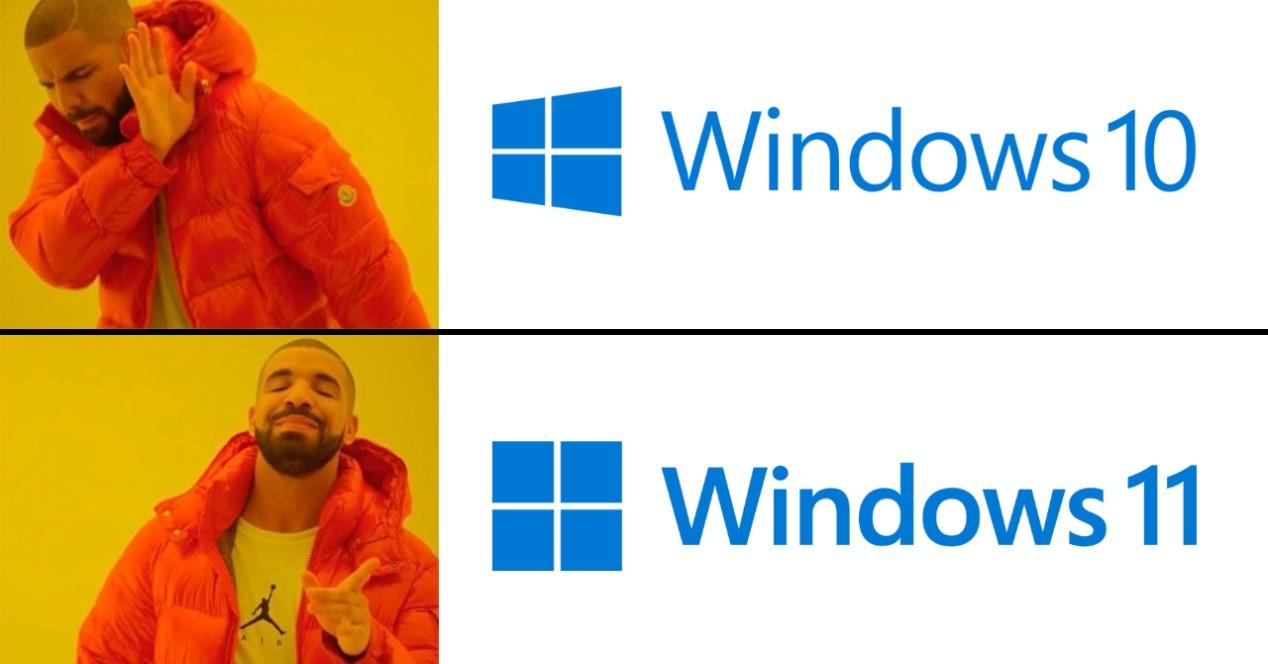Since the arrival of Windows 11there has been a lot of controversy over the new Microsoft operating system, starting with the hardware requirements it has, and continuing with the eternal debate of whether or not it’s worth it, even if it’s free if you already have Original Windows 10. If you are one of those who still have Windows 10 and are in doubt whether or not to upgrade to Windows 11, in this article we are going to give you the keys to dispel your doubts.
Windows 10 is currently the most widely used operating system on PCs, and in fact Windows 11 has not been very well received since its launch on October 5, 2021. However, Microsoft has pulled partners to try to promote the using the new version of their OS, but things don’t seem to be working for them, and there must be a reason, right?
Reasons YES to upgrade to Windows 11
Essentially, as hardware enthusiasts that we are, we see only one reason why a user would definitely want to upgrade to Windows 11: Intel Thread Director. This technology, integrated into Intel Core processors since the 12th generation (Alder Lake and later), is able to optimize the operation of the heterogeneous cores of new Intel processors (if you want to know more in depth how it works, we left you the link above the article in which it was explained at the time).
In essence, a PC with an Intel Core 12/13 processor will have more optimized performance under Windows 11 than under Windows 10 thanks to this technology which takes advantage of its hybrid architecture, and this is really the only reason why a user who already has Windows 10 and you’re happy with how it works, you might want to upgrade.
We also have to tell you that even if you have an Intel Alder Lake / Raptor Lake processor and Windows 10, it’s not that you’re going to notice a big improvement in performance, just the management of the processor cores is going to be a little better, especially in terms of efficiency. No more no less.
And for the rest, is it something worthwhile?
Honestly no. Let’s see, understand us: if you have just bought a new PC or have formatted and want to install the operating system from scratch, then you can take advantage of it and install Windows 11 as you are, but if you If you already have the PC working perfectly with Windows 10 and you’re happy with how it works, there’s no reason to upgrade to the new version, even if it’s free. Also, if you have the original operating system, for now you will continue to receive security updates and patches with new features, so there is really no need to do this.
Of course, there is also no reason NOT to update the new version of the operating system… the truth is that we have been using it almost since its release (in fact, since the arrival from Alder Lake, precisely for the reasons we explained to you in the previous section of the article) and we had no problems… it’s very easy to use (some things change, but that’s a question of adaptation) and it works very well.
So in summary: if you already have Windows 10 and are happy with it, there’s no reason to upgrade, just as there’s no reason not to…but that’s not it. really won’t be worth it unless you have an Intel Core 12 or 13 It’s up to you if you want to do it or not, but at least you know what you’re going to get.









